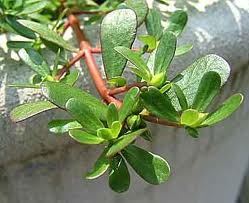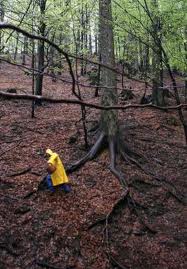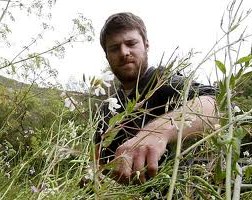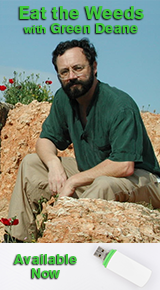 While making my purslane video I was thinking back to a family friend who refused to eat purslane because it was a “weed.”
While making my purslane video I was thinking back to a family friend who refused to eat purslane because it was a “weed.”
It had taken over about one third of her garden and was to date the best and most luxurious patch of purslane I’ve have ever seen. She was adamant, however. It was a weed and she wasn’t going to eat a weed. If I may bend definitions a little, she had become accustomed to “civilized food” and she wasn’t going to eat any wild food.
 For most of human history “wild food” was all there was. Now days “civilized food” is about all there is. And civilized people eat civilized food. Said another way, I think the resistance to eating wild food is more than just approaching the unknown and what dangers in might hold. Foraging is not what civilized people do. Cavemen did it, Native Americans did it, primitives do it as do starving populations. Foraging is just not included in the things humans do in a functioning modern society. The prevailing view is that foraging is ancient, primitive, and or dysfunctional. Hmmmm…. I guess that describes me fairly well.
For most of human history “wild food” was all there was. Now days “civilized food” is about all there is. And civilized people eat civilized food. Said another way, I think the resistance to eating wild food is more than just approaching the unknown and what dangers in might hold. Foraging is not what civilized people do. Cavemen did it, Native Americans did it, primitives do it as do starving populations. Foraging is just not included in the things humans do in a functioning modern society. The prevailing view is that foraging is ancient, primitive, and or dysfunctional. Hmmmm…. I guess that describes me fairly well.
 Foraging for food is like… making your own salt, far removed from modern life. We used to get or make things for ourselves. Now we simply go to some place and exchange money for things. Money is transferable time and energy. And in all fairness we have to exchange: There are too many of us to live off the land and not enough time to do all the things we would need to do to live the good life. Billions would starve if it were not for civilized food, and life would be more tooth and claw if not for the grand division of labor producing all the things we need, or want.
Foraging for food is like… making your own salt, far removed from modern life. We used to get or make things for ourselves. Now we simply go to some place and exchange money for things. Money is transferable time and energy. And in all fairness we have to exchange: There are too many of us to live off the land and not enough time to do all the things we would need to do to live the good life. Billions would starve if it were not for civilized food, and life would be more tooth and claw if not for the grand division of labor producing all the things we need, or want.
In its own way foraging, while not a threat to modern man, is for most a reminder that life was crude. But that is a backward glance. Looking forward foraging is environmental awareness. It is nutritional advantages. Foraging is also empowering and with that comes piece of mind and confidence.
 Foragers can use the past to educate people about the future. Foraging is about tomorrow, whether society holds itself together or not. It’s about treating the environment right. It’s about nutritional awareness and how “civilized” foods keep us alive but not healthily so. It is also about being self-sufficient, the first rule of being an adult and a fully-enfranchised citizen. Depend upon yourself, not the government. The more responsible and competent we are in all aspects of our lives the less government and governing we need. Self-sufficiency is more than physical, it is also mental. Anything you can learn that increases that broad idea of self-sufficiency is to the good, including how to put more wild foods into your diet. It is also very comforting in a deep way to be aligned with nature rather than viewing it as something wrong that needs to be fixed.
Foragers can use the past to educate people about the future. Foraging is about tomorrow, whether society holds itself together or not. It’s about treating the environment right. It’s about nutritional awareness and how “civilized” foods keep us alive but not healthily so. It is also about being self-sufficient, the first rule of being an adult and a fully-enfranchised citizen. Depend upon yourself, not the government. The more responsible and competent we are in all aspects of our lives the less government and governing we need. Self-sufficiency is more than physical, it is also mental. Anything you can learn that increases that broad idea of self-sufficiency is to the good, including how to put more wild foods into your diet. It is also very comforting in a deep way to be aligned with nature rather than viewing it as something wrong that needs to be fixed.
As for foraging…. Learning to forage to me is like learning to swim. I may not “need” it most of the time but when I end up in water it is a good thing to know.

